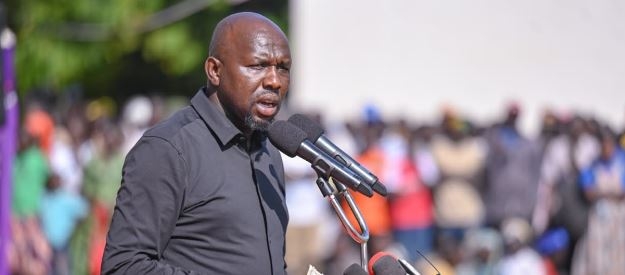As a physician in Ethiopia years ago, Dr Alemnew Dagnew witnessed the devastating impact of pulmonary TB on communities. The only available TB vaccine, BCG, was developed in 1921 and only protects babies and young children. It provides little to no protection to adolescents or adults.
Dagnew is now leading efforts to test a new vaccine that will protect adolescents and adults from TB. This will be the first TB vaccine in 100 years.
The vaccine candidate, M72/AS01E, is currently being tested in Kenya in Kisumu, Kilifi, Machakos and Nairobi counties.
Twenty thousand people will take part in Phase 3 trial in Kenya, South Africa, Zambia, Malawi, Mozambique, Indonesia and Vietnam.
Dagnew, who is the Gates Medical Research Institute's clinical development leader, is leading the double-blind trial.
He spoke to the Star’s John Muchangi
Why, over the past 100 years, has there been such little progress in developing an effective vaccine for pulmonary TB?
The most important reason is that mycobacterium tuberculosis, which is the cause of TB, is a complex pathogen. It has been with human beings for many years. The bacteria has been identified in Egyptian mummies, so it has evolved a lot. Its protection mechanism is not well understood. So it's a complex pathogen.
Can you explain the composition of the M72 vaccine candidate?
It's a subunit vaccine with an adjuvant. An adjuvant contains immunostimulants that give a stronger immune response.
Why was Kenya selected as one of the countries to conduct the Phase 3 trial?
For a couple of reasons. One is the burden of TB. Kenya is among the 30 high burden countries. The second reason is infrastructure. We have conducted an epidemiologic study in preparation for the Phase 3 trial to train the sites and make them ready for the trial. Kenya has good centres with clinical research experience.
What is a Phase 3 trial? And what are you looking for?
When you evaluate your product, it goes through different phases and Phase 3 is the last. It is the clinical development stage, which requires a larger sample size.
It is also the last stage that evaluates the protection and safety of the investigational product. We then submit the data to regulators for approval.
What is the required vaccine efficacy for M72 to be considered successful?
One of the WHO requirements is to have an efficacy of 50 per cent, for a vaccine for adolescents and adults. We have already seen an efficacy of 50 per cent in a relatively smaller clinical trial, which had about 3,500 participants.
When you have a smaller number of people enrolled in your clinical trial, you will have a wider 95 per cent confidence interval, which is less precise. So with the current trial design, with an enrollment of around 20,000 participants, we believe we have a robust clinical trial design that will give us a conclusive result with a more precise estimate.
Assuming a successful trial, how soon will M72 become available worldwide?
We have done modelling in terms of how long it will take to complete the trial. Based on that, it will take us around five years to complete the clinical trial. It could be shorter or longer. The design is called event-triggered analysis.
We will have the final analysis when we accrue 110 events of pulmonary TB. So it will all depend on how soon we accrue those events.
Based on the modelling, we believe it will take us around five years. But again, it could be earlier or later.
Once we get the results, we will have to put together a document for approval by applicable health authorities globally and also in individual countries. And in terms of access, Gates MRI, GSK, Wellcome and Gates Foundation are working together to have an end-to-end plan in terms of which countries and when there will be access to this vaccine, if the efficacy and the safety results from the Phase 3 trial will be successful.
What’s the plan to make the vaccine affordable and accessible to the vulnerable communities?
This clinical trial is being funded by the Gates Foundation and Wellcome. GSK is also a partner of the trial in terms of providing the adjuvant.
Gates MRI, Gates Foundation, Wellcome and GSK are working together in terms of access to this vaccine. The details are being worked out.
Other stakeholders, depending on the need, will also be involved.
















